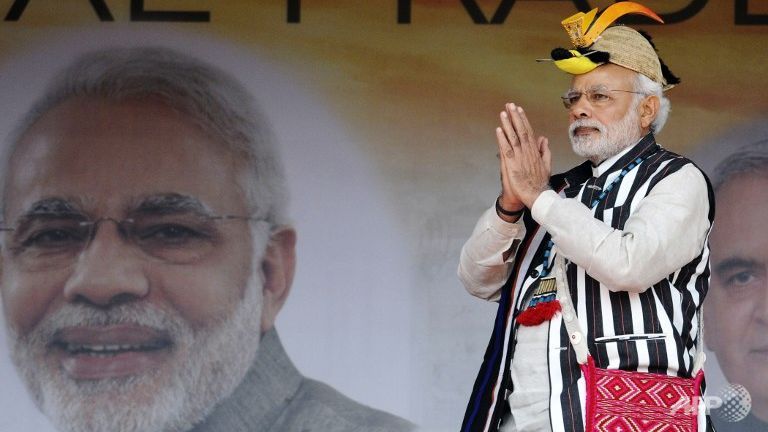
(TibetanReview.net, Feb21, 2015) – China said Feb 20 that it had lodged a strong representation with India to express “diametrical” opposition to Prime Minister Narendra Modi’s visit to India’s border state of Arunachal Pradesh which it said was a disputed territory. Modi visited the state to celebrate its founding day on Feb 20. No Chinese dynasty or republic has ever ruled the territory and China’s claim over it rests purely on its annexation of Tibet after 1949 which India endorses.
China lays claim to the entire state of Arunachal Pradesh, calling it south Tibet over recent years. It briefly occupied the historic town of Tawang, a key site for Tibetan Buddhism, during the 1962 war.
China’s Foreign Ministry spokeswoman Hua Chunying has said, “the act of the Indian side is not conducive to properly resolving and controlling disputes between the two sides, nor in conformity with the general situation of growth of bilateral relations.”
Hua has asserted that Indian authorities illegally and unilaterally declared the “so-called Arunachal Pradesh” state in 1987 and that the Chinese government had never recognized it.
Citing a press release by Hua posted on the official website of the Foreign Ministry, China’s official Xinhua news agency said Feb 20 that the “so-called Arunachal Pradesh” was established largely on the three areas of “China’s Tibet” – Monyul, Loyul and Lower Tsayul. It added that these three areas, located between the allegedly illegal “Mcmahon Line” and the traditional customary boundary between China and India, had always been Chinese territory.
“We demand the Indian side to pay attention to the strong concern of the Chinese side,” Hua was quoted as saying, adding that India should march toward the same goal with China and insist on a fair and reasonable resolution of the border issue through negotiation.
She has reiterated China’s demand that India refrain from taking any action that may complicate the border issue before its resolution so as to maintain the sound momentum in the growth of bilateral relations.


